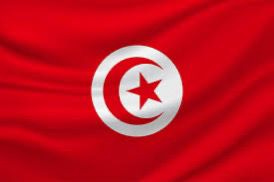I know you are exhausted but we have to talk about Tunisia
The story of Rached Ghannouchi
Let’s be honest: the world feels like it’s on fire. From Gaza to Khartoum, eastern Congo to Kyiv, it’s become difficult to keep track of who’s bombing whom, who’s in exile, and which regime is falling apart next. The pace of global crises is relentless — and exhausting.
So if you’re struggling to follow the latest twist in the Iran-Israel saga, or can’t quite recall who’s leading the transitional government in Sudan (is there even one?), you’re not alone. There’s only so much bandwidth — and empathy — to go around.
Which is why asking you to care about Tunisia might feel like a stretch. After all, what’s one more struggling state in a region full of them?
But hear me out.
Back in 2011, Tunisia was the spark that lit the Arab Spring. It was the first country to oust a dictator — Zine El Abidine Ben Ali, who’d ruled since 1987 — and chart a hopeful path towards democracy. For a brief, fragile moment, it looked like the revolution might actually work.
And for about a decade, it did.
But in 2021, President Kais Saied began turning back the clock. In what many now describe as a slow-motion coup, he suspended Parliament, rewrote the constitution, and began locking up critics — journalists, opposition leaders, judges.
Among those jailed was Rached Ghannouchi, the 84-year-old former speaker of Parliament and head of the once-powerful Ennahda party. Ghannouchi is no stranger to political persecution — he was previously jailed and exiled under the old regime — but his current detention has raised alarm bells.
Not just because of who he is, but because of what it signals: the almost complete collapse of Tunisia’s democratic experiment.
Ian Bremmer, one of the more sober-minded foreign policy analysts out there, called Saied “an uncharismatic constitutional lawyer” who was elected on a wave of anti-establishment frustration. Five years later, that wave has drowned the very democracy that Tunisians fought to build.
This week, Ghannouchi’s daughter, Yousrah, was in South Africa trying to raise awareness about her father’s imprisonment. And her choice of venue is telling. In a world where democracy is fraying — and where the so-called “free world” often turns a blind eye to authoritarian creep in Africa — South Africa is seen as a rare voice of moral clarity.
WATCH OUR VIDEO HERE
Whether it’s taking Israel to the ICJ over Gaza, or standing firm on matters of international law, South Africa has become something of a standard-bearer for principle — even when it’s politically inconvenient.
So why does Tunisia still matter? Because it reminds us how quickly things can unravel and Hhw revolutions can be reversed.
We cannot forget how fragile — and precious — democracy really is.
If we believe in constitutional rights, we can’t only defend them when they’re under threat in rich countries with media attention.
Tunisia is a warning. And, if we choose to listen, a lesson.







